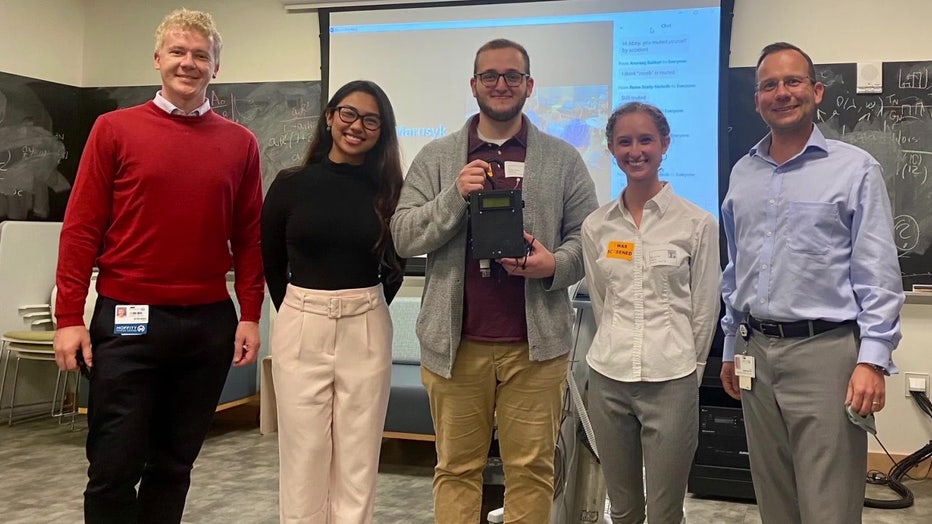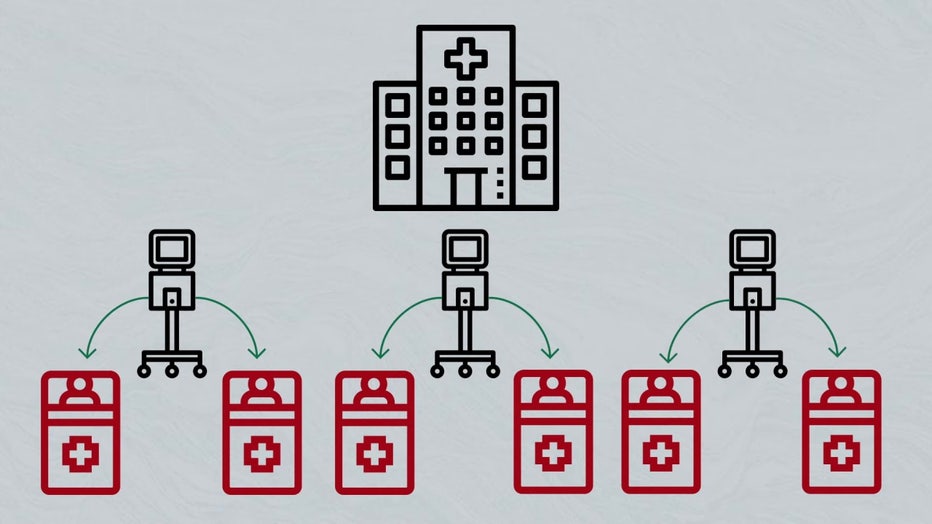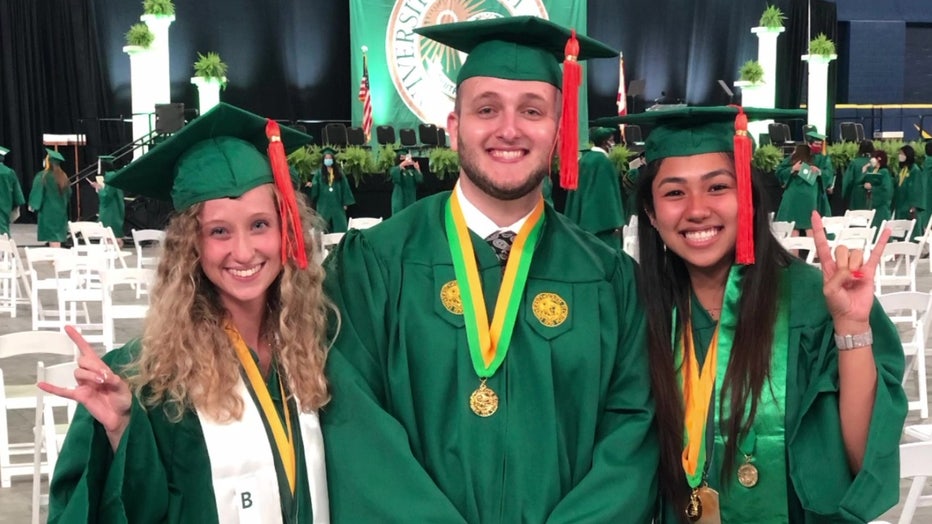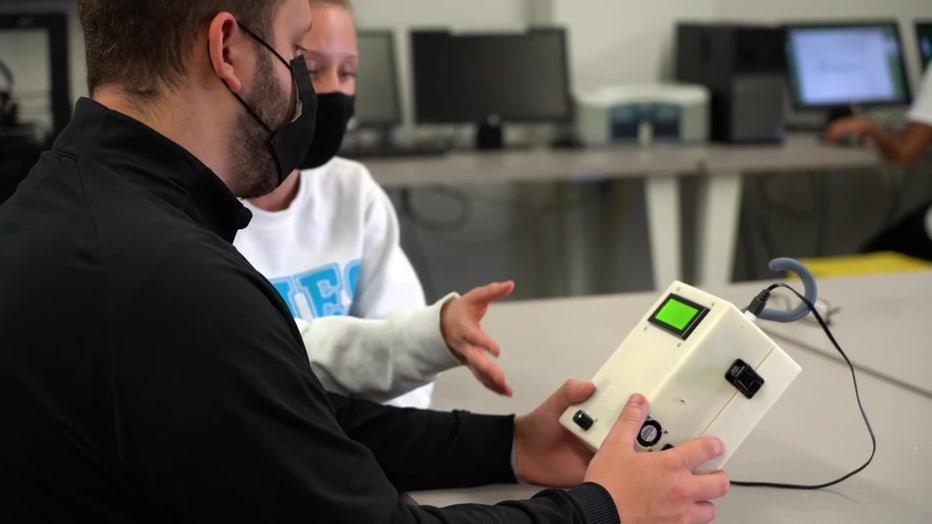Tampa college students invent device that doubles ventilator capability
TAMPA, Fla. - Three University of South Florida students hope to get their life-saving invention into hospitals to help address the global ventilator shortage, a problem that came to light during the height of the COVID-19 pandemic last year.
The worldwide health crisis pushed ventilators to the limits, forcing doctors to choose who to care for.
So when Moffitt Cancer Center came to a USF engineering class looking for solutions to the ventilator shortage, three students came up with a new idea.
"We saw thousands of people that were not able to get proper care because there was simply like too many people and a limited supply of ventilators," said Carolyna Yamamoto Alves Pinto, a USF biomedical engineering graduate.

Now bio-medical engineering graduates, Carolyna Yamamoto Alves Pinto, Jacob Yarinsky, and Abby Blocker developed the Eucovent. It hooks up to a ventilator and splits the air to two or more patients.
PREVIOUS: Florida nearing pivotal 85% mark in COVID-19 immunity
"Before, the patients had to be very similar in size, very similar ventilator need. But ours, now it can be totally different. It can be as customizable as you can. There are a few small limitations, but it's a big step from previous solutions," said Yarinsky.
The life-saving device doubles a hospital’s existing ventilator capacity, and it’s designed to help beyond the current public health crisis.

"Not only can it apply to the pandemic, but also any type of natural disaster, other disasters like a mass shooting, they've had problems with ventilators in the past during those," said Blocker.
They said they also thought of Eucovent helping in low-resource areas like rural hospitals and in the military.
"It's just a problem that we don't hear about how the supply of ventilators in the hospital is limited by not only like the storage in the space that they have, but also the money because ventilators are very expensive machines," said Yamamoto Alves Pinto.

Abby Blocker, Jacob Yarinsky, and Carolyna Yamamoto Alves Pinto
The Eucovent still needs animal and clinical testing, so the three former classmates said that’s their goal to help get their invention out in the real world.
"It's an unreal feeling. It's definitely why I became a biomedical engineer to, you know, not only, you know, help people, but to create things that can help people," said Yarinsky.

The graduates said there’s a patent pending on the Eucovent, and the device would need FDA approval before it can go out to hospitals. Blocker said countries like India that were hit hard by the pandemic reached out to them about using the Eucovent too.
"We don't want to give up the project just yet. We want to keep working so we can get it out there," said Blocker.

